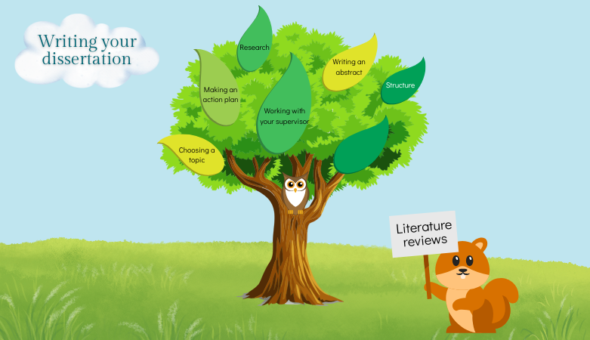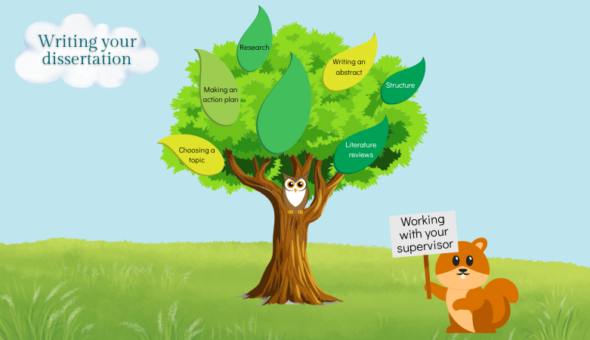Feeling overwhelmed by a pile of assignments all due at the same time? Fear not!
We understand this can seem daunting. However, effective management of coursework can really help you to navigate these challenges. This applies whether you’re just starting your course or are already well into your studies.
1. Create a schedule
You don’t have to start all the assignments at once just because they are set all around the same time. It can be useful to finish one thing before moving on to the next to avoid feeling overwhelmed.
A well-planned schedule is a powerful tool for staying on top of coursework. Break down tasks into manageable chunks, such as reading a complete chapter, using a digital calendar (such as your Outlook Calendar) to organise your schedule.
2. Set realistic goals
Use the “SMART” goal method: make your goals Specific, Measurable, Achievable, Relevant, and Time-bound. This can help you stay focused and track your progress, which helps avoid procrastination. For example, you might set the goal of reading a chapter to the end by the end of the day.
3. Prioritise your tasks
When you’re set a new task, try to work out if it involves anything particularly time-consuming so that you can avoid nasty surprises down the line. For example, arranging meetings with interview subjects can take a long time.
4. Stay organised
Use a network drive like OneDrive to avoid multiple versions of files on different devices and to make files accessible at all times. If you’re going to make large changes to a piece of writing, use a number at the end of the filename to differentiate it from the other versions.
5. Seek help when needed
If you’re struggling to understand or complete your assignment, there’s no shame in reaching out for help from your tutor, fellow students, or the Skills Centre. Everyone needs help from time to time and the sooner you ask the more time there is to solve any issues.
6. Research and record information
It’s important to condense your reading to make it easier to remember and to manipulate information, theories and arguments in the literature in your writing.
Leave out irrelevant detail to allow focus on the important points. Note-taking is especially useful if the topic is new and/or difficult as it forces the note-taker to understand.
To save time, use abbreviations, (for example ‘int.’ for ‘international’) and symbols (like ‘+’ for ‘and’).
To avoid plagiarism, always make a note of the full details of the source. See these Library pages for help with citation and referencing.
7. Proofread your written work
Start at the large scale and work down to the details:
First check the overall content:
- Have you included everything relevant to the task?
Then check at paragraph level:
- Have you started each paragraph with a sentence that tells the reader the topic of the paragraph?
- Have you provided evidence to support any claims you make?
Finally check language at sentence level:
- Are most of your sentences a reasonable length? Avoid connecting more than three ideas in a sentence.
- Are the spelling and grammar accurate? (Use Word’s onboard spelling and grammar checker and your own knowledge.)
- Have you used terminology correctly? Check against a subject-specific dictionary (available through the Library).
To sum up
- Don’t be overwhelmed by having more than one assignment set and due around the same time.
- Use a calendar to plan a schedule.
- Set SMART goals and prioritise the important ones.
- Use a network drive to avoid duplication of files.
- Don’t be afraid to ask for help and do so early.
- If you still have concerns, please do book a Skills for Success tutorial.
Respond



